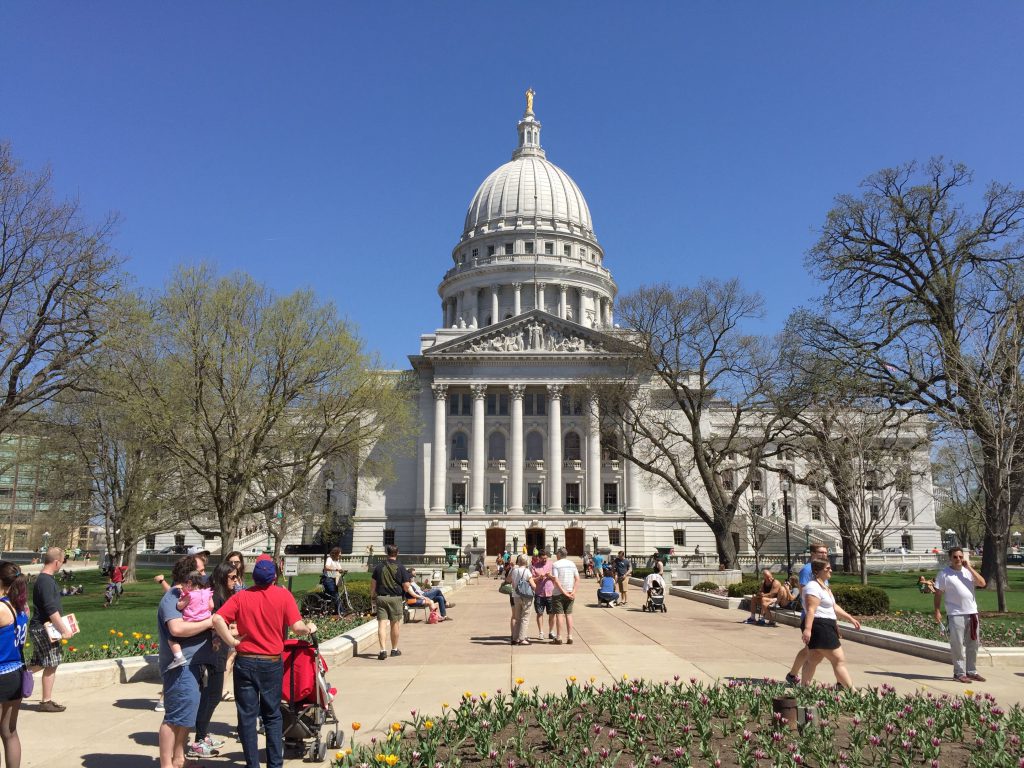Bill Expands Minority Teacher Loan Program
Would bring more minority teachers to 20 additional school districts.
A bipartisan proposal at the state Capitol would expand a loan program aimed at getting more teachers from minority communities into Wisconsin classrooms with high percentages of minority students.
Under the bill, an existing loan forgiveness program for minority teachers would be expanded from Milwaukee to qualifying school districts statewide.
According to its sponsors, the proposal is aimed at promoting a population of teachers in Wisconsin that better reflect the state’s diversity.
“We have minorities throughout our state and it would be helpful for minority students throughout the state to have minority teachers,” said Sen. Dale Kooyenga, R-Brookfield.
Another sponsor, former teacher Rep. LaKeshia Myers, D-Milwaukee, told lawmakers earlier this year she has witnessed firsthand “the tremendous impact minority teachers have on students.”
Other sponsors include Rep. Amy Loudenbeck, R-Clinton, and Rep. Jason Fields, D-Milwaukee.
Under the bill, minority teachers who work in school districts with at least 40 percent minority students would be eligible for loans and loan forgiveness offered by the state.
According to the state Department of Public Instruction, that change would broaden the program’s reach from Milwaukee to more than 20 additional school districts, including districts in Madison, Green Bay, Racine and Beloit.
The program offers up to $30,000 in loans for eligible students seeking undergraduate degrees in teaching and forgives 25 percent of the loan amount for every year they spend teaching in a qualifying school district.
The bill would also broaden the definition of “minority” to include students of Asian or Pacific Island origin, not just Hmong students, Alaskan natives and any student whose ancestry includes two or more races.
Previously, the bill’s definition included African Americans, American Indians, Hispanics and “persons admitted to the United States after December 31, 1975, who were either a former citizen of Laos, Vietnam, or Cambodia or whose ancestor was or is a citizen of Laos, Vietnam, or Cambodia (Hmong).”
Kooyenga said the program has been very poorly utilized in recent years.
“Utilization has been almost non-existent,” he said.
According to the Legislature’s non-partisan budget office, only one loan was approved under the program in 2017-18. The program has $519,000 in funding over the next two years.
The bill passed the Assembly unanimously in June. It was unanimously approved this week by a Senate committee and could be taken up by the full Senate as early as October.
Listen to the WPR report here.
Bill Would Expand Minority Teacher Loan Program was originally published by Wisconsin Public Radio.
Political Contributions Tracker
Displaying political contributions between people mentioned in this story. Learn more.























Why aren’t the politicians trying to find out why this program was not utilized by minority teaching candidates in the Milwaukee area. While maintaining funding for this program, there needs to be a much larger program to help rural communities recruit and retain teachers. Rural Republican legislators do little to advocate for their local community schools.